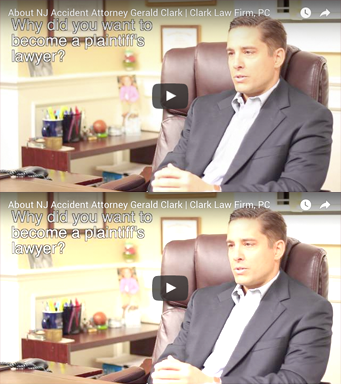The Deposition Process
If you have been deposed in your personal injury case, your New Jersey personal injury lawyers will thoroughly explain the process to you and get you prepared for any deposition questions.
Deposition Instructions
In most states, each party involved in the lawsuit has the right to take the deposition of the opposing party and any witnesses. Whether you are a plaintiff, defendant or witness in a lawsuit, you may be required by the opposing party to appear at a given time and place and provide your oral testimony under oath. The testimony is recorded either manually or digitally, and transcribed for later use in the lawsuit. The deposition may also be a video and audio recorded.
A successful deposition can be a huge benefit to your case, either by advancing the argument for settlement or by helping you and your New Jersey personal injury lawyers to prepare for the trial. Your attitude, honesty and appearance at the deposition all play a significant role in influencing the outcome of the case.
Use the following information to educate yourself about the discovery deposition process. Your New Jersey personal injury lawyers will prepare you for testimony and advise you on proper conduct inside the hearing room. Be sure to go over all of the facts of your case and come up with a battle plan well before the deposition.
Purpose of Deposition
The objective of the deposition is to examine the witness’ story about the incident and any pertinent facts he or she can recall, which will assist lawyers in developing a case for trial. It also provides an opportunity for all parties involved to measure the witnesses in terms of their ability to make a favorable impression and articulate themselves.
In your case, the opposing attorneys in the lawsuit will be taking your deposition for at least one of the following reasons:
-
To discover what facts you know about the issues in the lawsuit;
-
To seek information you might have that is useful to the opposing side;
-
To pin you down to statements under oath so that you will not be able to deviate from them later;
-
To try to cast doubts on your testimony or the testimony provided by other witnesses regarding the same issues; and
- To get a comprehensive assessment of your appearance and conduct as you give your testimony, as well as how that impression might affect your credibility before a judge or jury at trial.
Contact Us
For more information about the deposition process, speak to the New Jersey personal injury lawyers at the Clark Law Firm, PC by calling today at 877-841-8855. The initial consultation is free.

